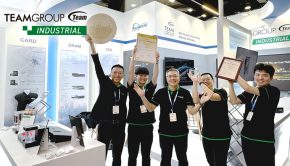Epson Develops the World’s First Office Papermaking System that Turns Waste Paper into New Paper
PaperLab promises to revolutionise office recycling by securely destroying documents and turning them into office paper using a dry process
SYDNEY, 1 December 2015 – Epson has developed what it believes to be the world’s first*1 compact office papermaking system capable of producing new paper from securely shredded waste paper*2 without the use of water*3.
Epson plans to put the new “PaperLab” into commercial production in Japan in 2016 with sales in other regions to be decided at a later date. Businesses and government offices that install a PaperLab in a backyard area will be able to produce paper of various sizes, thicknesses, and types, from office paper and business card paper to paper that is coloured and scented.
A developmental prototype of the PaperLab will be demonstrated at the Epson booth (booth location: 4-002) at Eco-Products 2015, an environmental exhibition that will take place at the Tokyo Big Sight (Tokyo International Exhibition Centre) from December 10 to 12.
The enduring universal appeal of paper lies in its simplicity as a communication tool. Information on the highly portable and always convenient medium of paper is easy to read, easy to digest, and easy to remember. On the other hand, this essential tool is also produced from a limited resource. As a leading company in the world of printing, Epson has been deeply involved with paper used for its printer products. With this in mind, the company set out to develop technology that would change the paper cycle. With PaperLab, Epson aims to give new value to paper and stimulate recycling.
PaperLab Features
1. Office-based recycling process
Ordinarily, paper is recycled in an extensive process that typically involves transporting waste paper from the office to a papermaking (recycling) facility. With PaperLab, Epson is looking to shorten and localise a new recycling process in the office.
2. Secure destruction of confidential documents
Until now enterprise has had to hire contractors to handle the disposal of confidential documents or has shredded them themselves. With a PaperLab, however, enterprise will be able to safely dispose of documents onsite instead of handing them over to a contractor. PaperLab breaks documents down into paper fibres, so the information on them is completely destroyed.
3. High-speed production of various types of paper
PaperLab produces the first new sheet of paper in about three minutes of having loaded it with waste paper and pressing the Start button. The system can produce about 14 A4 sheets per minute and 6,720 sheets in an eight-hour day.
Users can produce a variety of types of paper to meet their needs, from A4 and A3 office paper of various thicknesses to paper for business cards, colour paper and even scented paper.
4. Environmental performance
PaperLab makes paper without the use of water. Ordinarily it takes about a cup of water to make a single A4 sheet of paper. Given that water is a precious global resource, Epson felt a dry process was needed.
In addition, recycling paper onsite in the office shrinks and simplifies the recycling loop. Users can expect to purchase less new paper and reduce their transport CO2 emissions.
PaperLab technology
Epson’s foundation of compact, energy-saving and high-precision technologies enables the company to achieve small, energy-efficient products that offer outstanding accuracy and performance. With printer business operations spanning the consumer, office, commercial and industrial sectors, Epson has an immense storehouse of ink and media expertise, as well as the ability to produce reliable, durable systems that will operate stably.
In addition to these, Epson has developed Dry Fibre Technology without water, a new group of technologies for the PaperLab.
Dry Fibre Technology consists of three separate technologies: fiberising, binding, and forming.
Fiberising
Waste paper is mechanically fiberised using an original mechanism that transforms the paper into long, thin cottony, fibres and, in the process, immediately and completely destroying confidential documents. Since the PaperLab does not use water, it does not require plumbing facilities. That, plus its compact size, makes it easy to install in the backyard of an office.
Binding
A variety of different binders can be added to the fiberised material to increase the binding strength or whiteness of the paper or to add colour, fragrance, flame resistance, or other properties needed for a given application.
Forming
Users control the density, thickness, and size of paper. They can produce sheets of A4 or A3 office paper, paper for business cards, or paper of different thicknesses and sizes, depending on use.
Epson aims to help customers increase operational efficiency by providing high-speed, low-power business inkjet printers that deliver images of amazing quality at a low cost per print. And by employing PaperLab to convert used paper into new, the company believes that offices of all types will fundamentally change the way they think about paper.
Notes
*1 Epson believes it is the world’s first paper production system to use a dry process.
*2 The system can use ordinary A3- and A4-sized copy paper as raw material.
*3 A small amount of water is used to maintain a certain level of humidity inside the system.
Main Specifications of the Prototype Product
Name
The PaperLab office paper making system
Dimensions (w x d x h)
2.6 x 1.2 x 1.8 meters (excluding projecting parts)
Paper production speed
14 sheets per minute (A4 sheets)
Paper that can be produced
Sizes: A4 & A3
Types: Office paper, business card paper, and other paper of various thicknesses. Colour paper (cyan, magenta, yellow, and colours formed by mixing these colours).
Paper that can be recycled
Ordinary copy paper (A4 & A3)
Commercialisation
2016
NOTE: These specifications are for a product that is still in development and are subject to change without notice.







